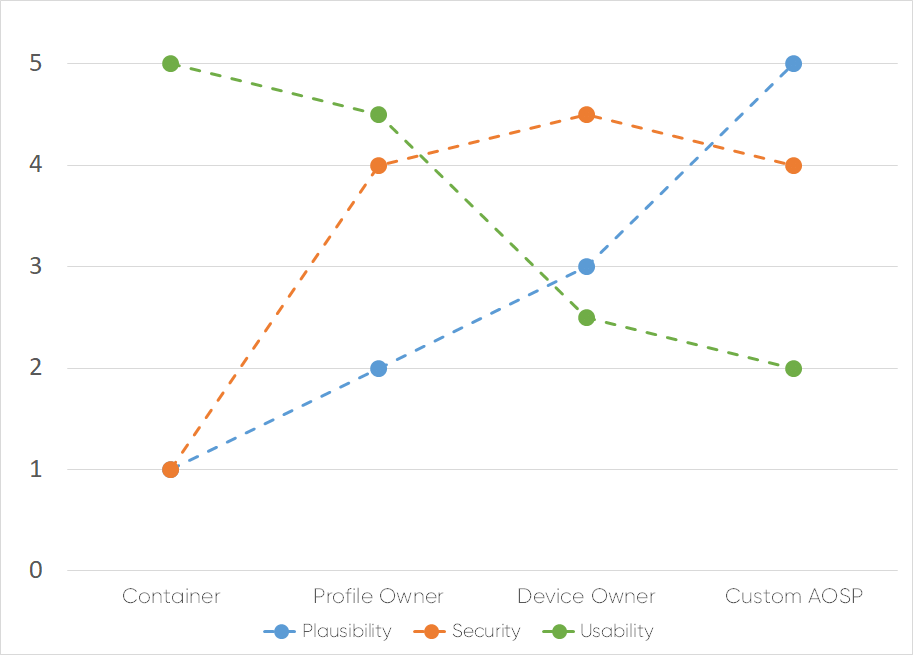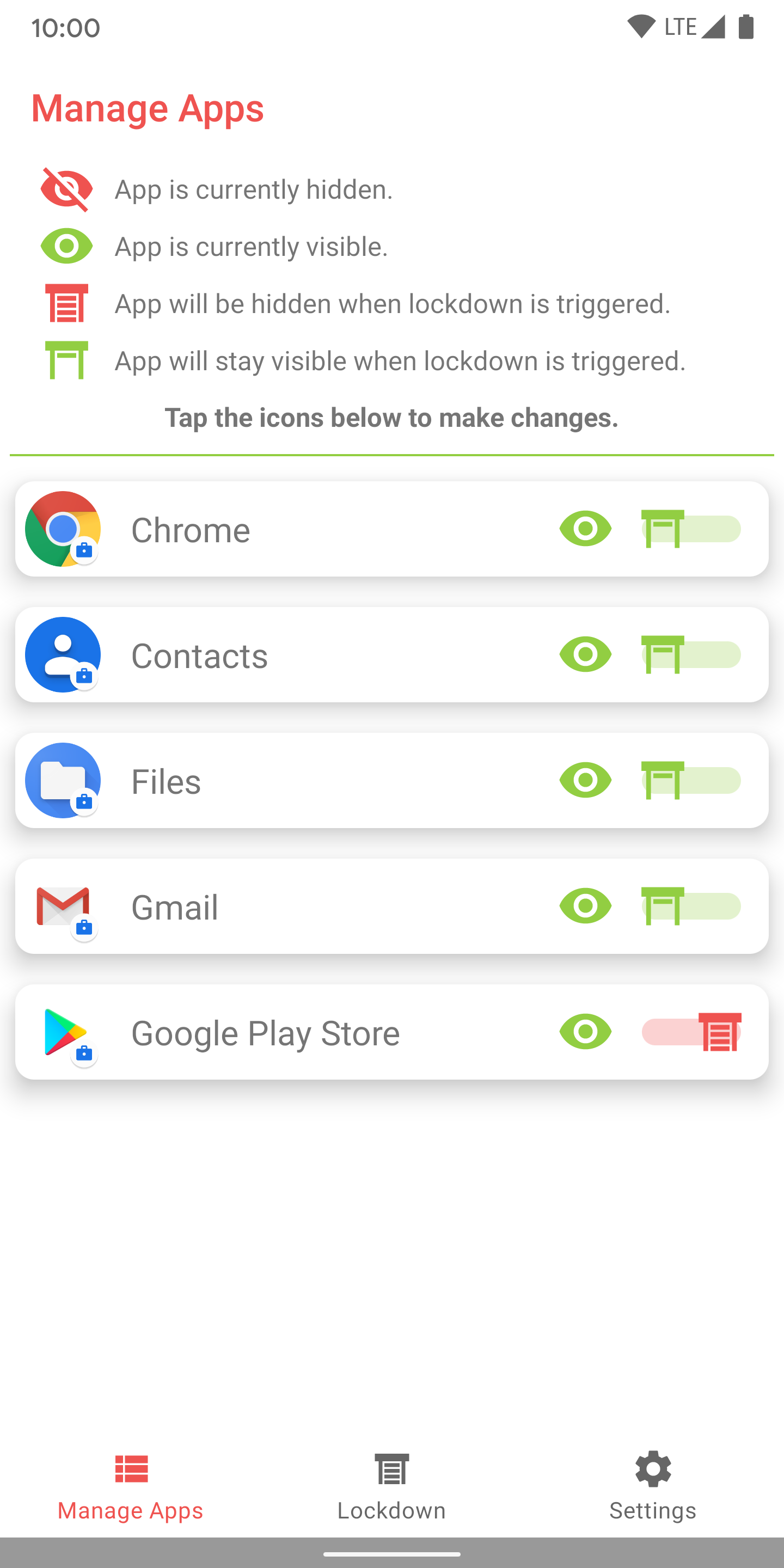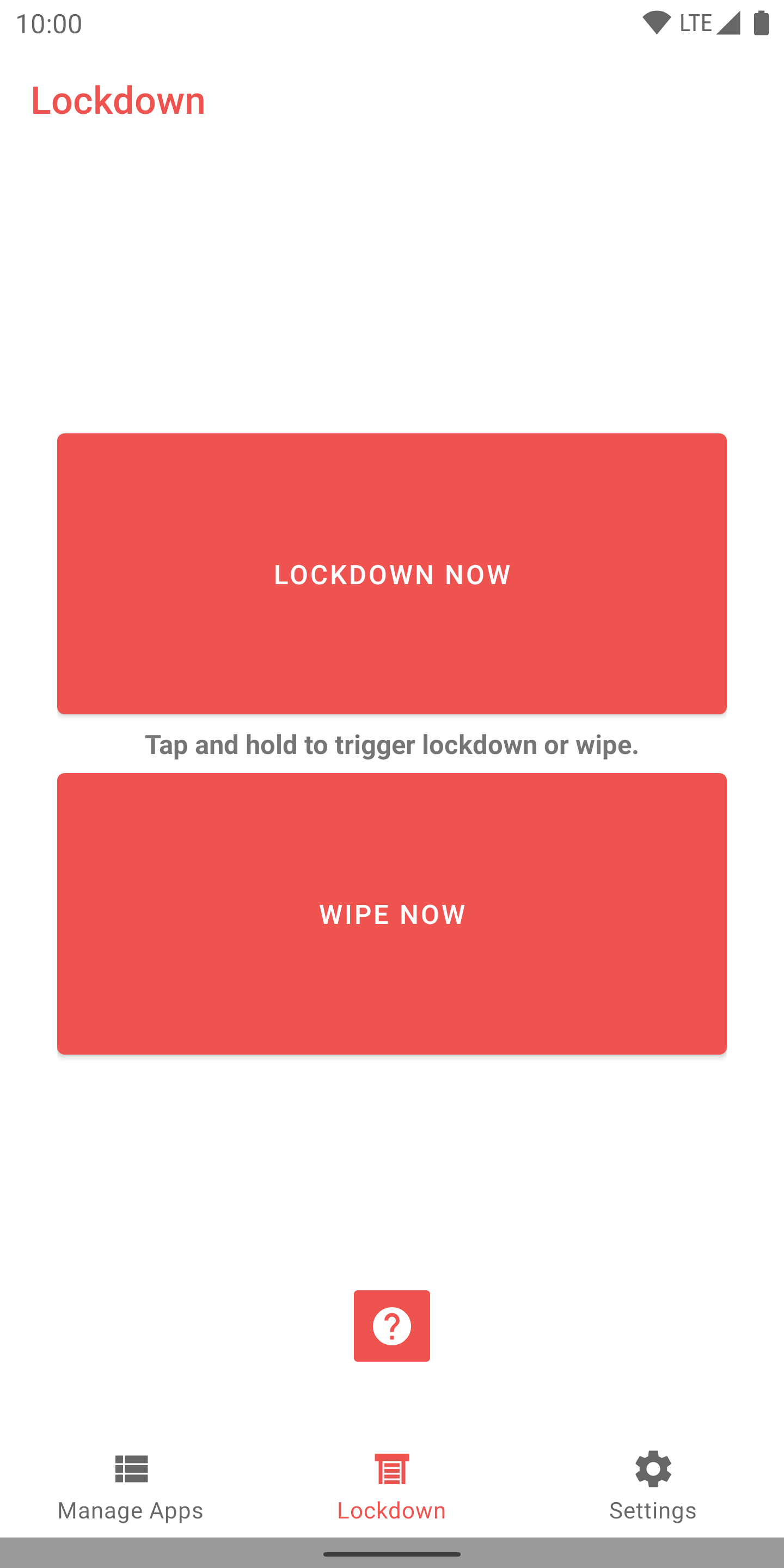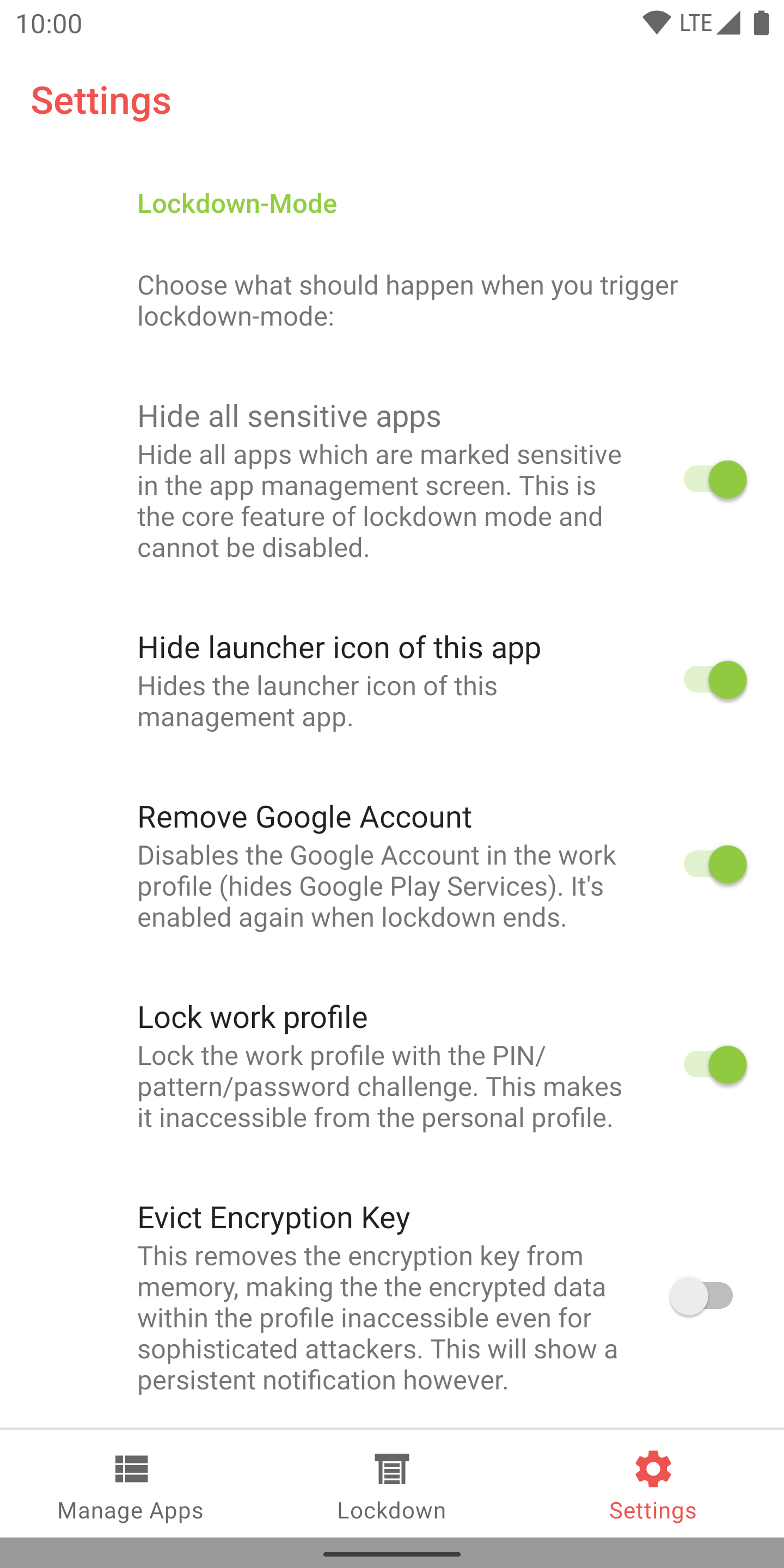DueProcess: App-based (Im)plausible Deniability for Android
Confidentiality of data stored on mobile devices depends on one critical security boundary in case of physical access, the device’s lockscreen. If an adversary is able to satisfy this lockscreen challenge, either through coercion (e.g. border control or customs check) or due to their close relationship to the victim (e.g. intimate partner abuse), private data is no longer protected.
Therefore, a solution is necessary that renders secrets not only inaccessible, but allows to plausibly deny their sole existence. This thesis proposes an app-based system that hides sensitive apps within Android’s work profile, with a strong focus on usability. It introduces a lockdown mode that can be triggered inconspicuously from the device’s lockscreen by entering a wrong PIN for example. Usability, security, and current limitations of this approach are analyzed in detail.
Analysis of implementation options
We evaluated different approaches and decided to implement a Device Policy Controller app in profile owner mode, because this should result in a decent level of usability and security (see figure).

The application



The app is called “DueProcess”. It allows users to hide apps on demand, on a per-app basis or by triggering a so-called lockdown-mode, which hides all apps marked as sensitive at once. This lockdown can be triggered with a button inside the app or by deliberately failing the device’s lockscreen challenge a couple of times.
The app uses the work profile feature of Android and runs inside of it. Android allows the use of a separate lockscreen for the work profile, which encrypts the data inside with a different key.
The APK can be acquired here, including a guided setup after installation. This enables users to perform downloads without attribution to their person.
Source code
Source code is available on Github under the EUPL, Version 1.2.
Detailed design decisions, results, and interpretations can be found in the master thesis: